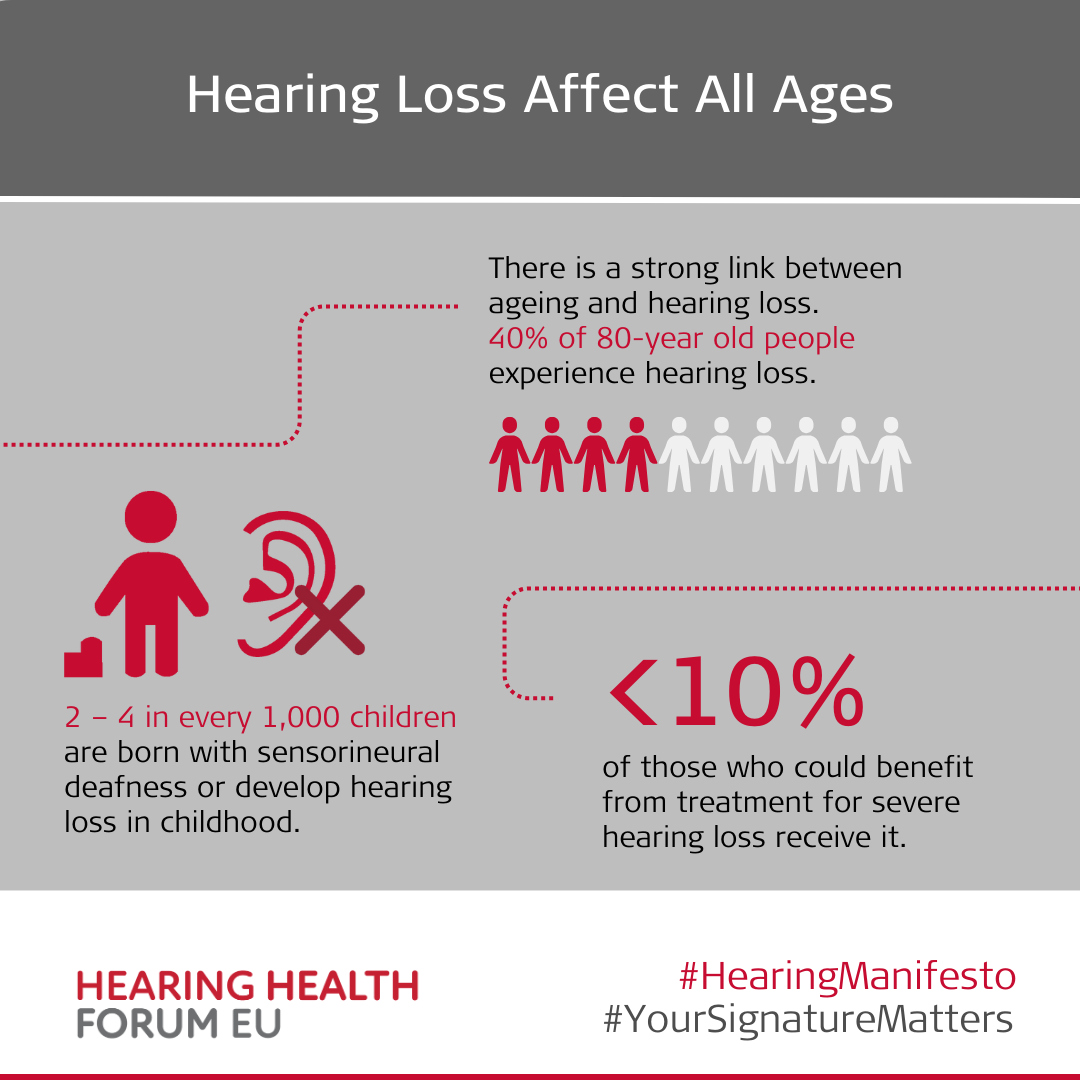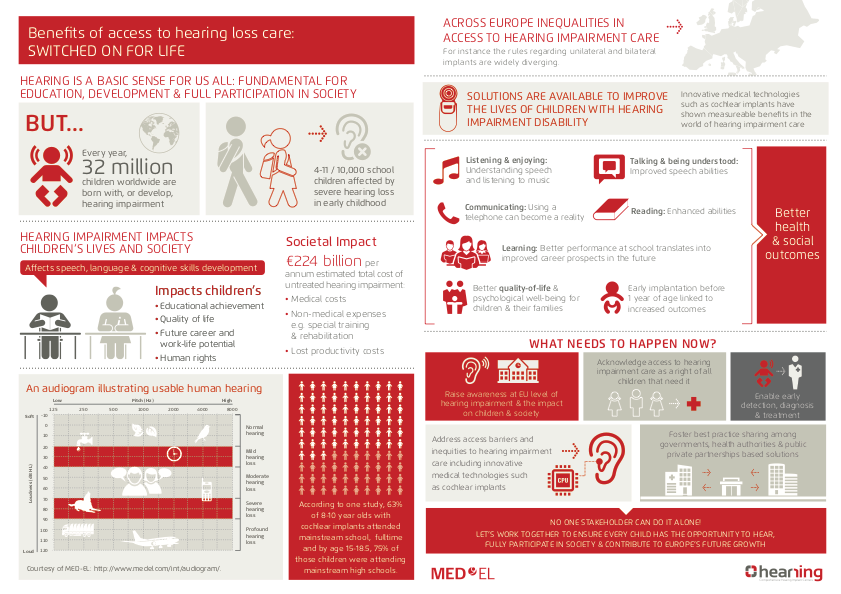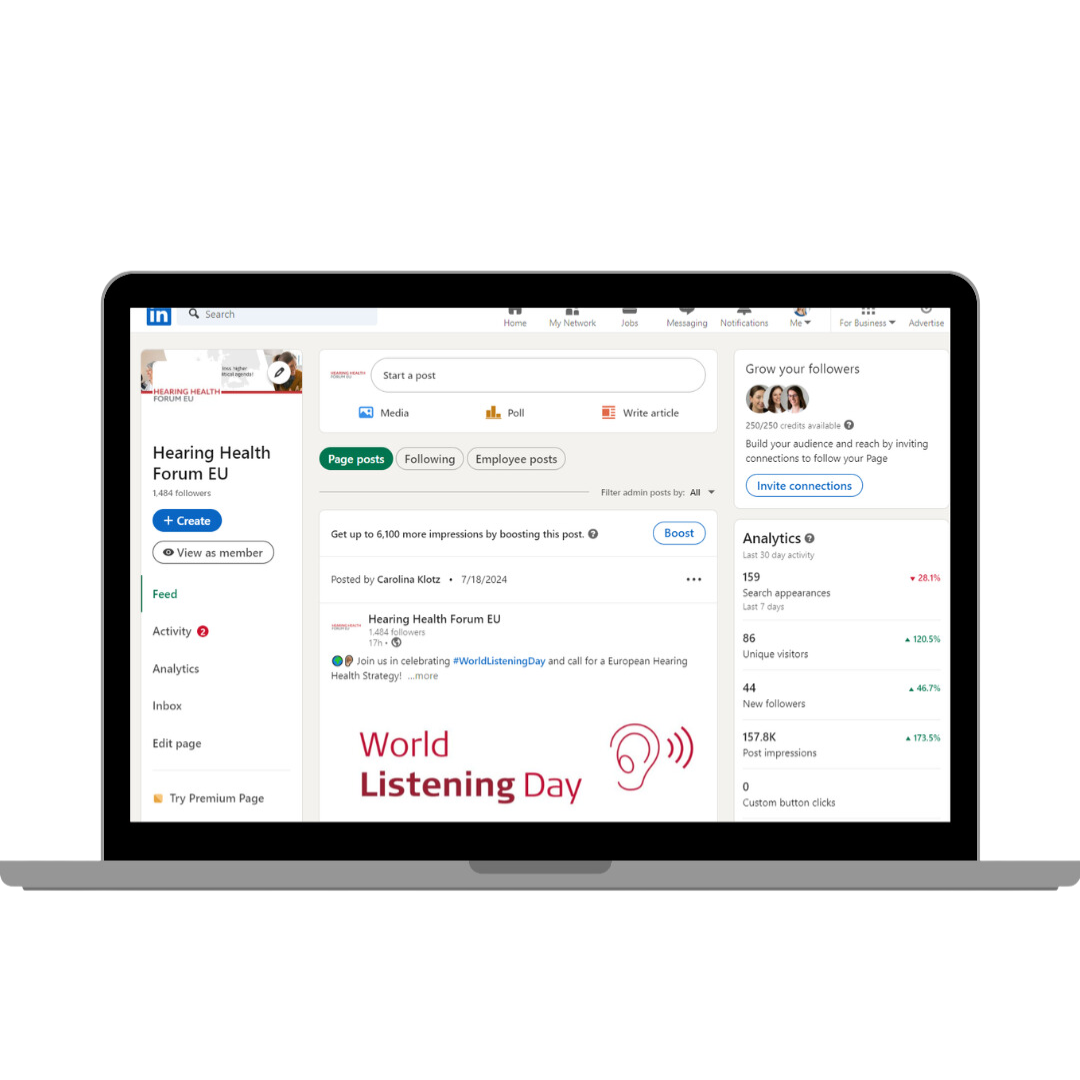Stay up to date about the latest news on hearing loss and policy making.
The Benefits of Hearing Loss Treatment for Children
Many children who use cochlear implant technology for sensorineural hearing loss attend mainstream schools. In fact, a number of studies have shown that children with access to treatment go on to have normal language development and improved understanding of speech. These benefits are enhanced if treatment is given at a young age and the latest technology is provided.
The cost of specialist education support for children with untreated hearing loss is a key consideration for Governments. For a child with additional needs the kindergarten support is ~€7,500 per year; this is 10 times greater than the cost of mainstream school (Baumgartner, 2011).



